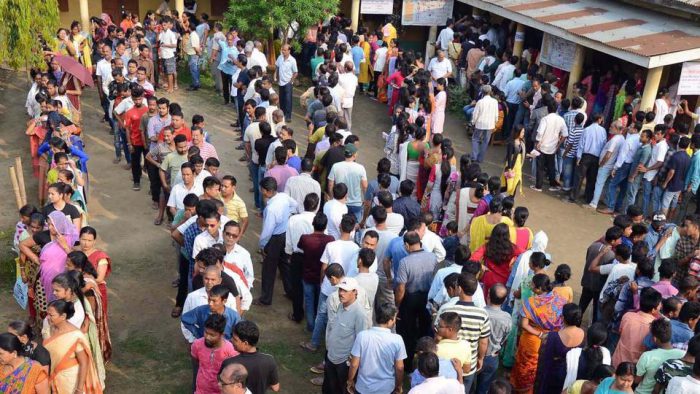
File Picture
To appreciate this complex issue first define state in its classical and modern forms stressing the basis of state formation as a political society founded on a ” social contract” and the main institutional features of a modern democratic state” based on the rule of law and” a government by discussion”( Sen). The importance of the integrity of the core institutions of governance – a strictly apolitical neutral role of the civil service, isolation of the armed forces from the political process apart from an independent judiciary, freedom of speech and the right to form associations and periodic elections to the legislature .
A crisis of Democracy refers to the situation when any or more of the core institutions are brazenly compromised causing a sharp fall in the quality of democratic governance affecting the rights of the citizens and obstructing welfare, peace and progress of the citizens. In such a scenario, the concept of separation of powers is seen as inoperative in good measure.
The Economist Intelligence unit’s classification of states- democracies into full, flawed and hybrid and authoritarian is an assessment of the working of the core institutions of democratic governance mentioned above. Understanding of what caused these deviations from the core of the democratic values and the institutions based there on is central to appreciation of the degree of crisis that a democratic state may be facing at any given point of history.
These causes might be many and complex and even external to the state such as geopolitics; and adverse internal environment such as gross inequality in income, unemployment, unbalanced regional development , identity politics, populism and extremism – right or left and violence posing challenges which the state is not able to meet effectively and hence the crisis. The unresolved Brexit issue of Britain- a crisis now is one such example of the elected cabinet unable to implement the will of the people expressed in 2016 Referendum to leave the European Union.
Another dimension of the crisis is the expanding influence of the corporations in the state though no corporate entity can survive without state support ; and yet there are many routes such as legalized corporate funding of political parties which enable them to influence the government to serve their interest which is often not in the public interest.
By the far the most serious threat to democracy in the digital age to today is posed by social media, network power and global corporate bodies like the Facebook, Google and WhatsApp which have been known to effectively shape the opinions of even the informed sections of the society as allegedly by Russia in the last US presidential election. Online witch hunt, spread of fake news, micro manipulation of the electorate have caused disruptions not only in the election but also in the political process of decision making.
Since democracies all over the world are grappling with these existential threats it is necessary to analyze the same in the Indian context and conceptualize it.


















